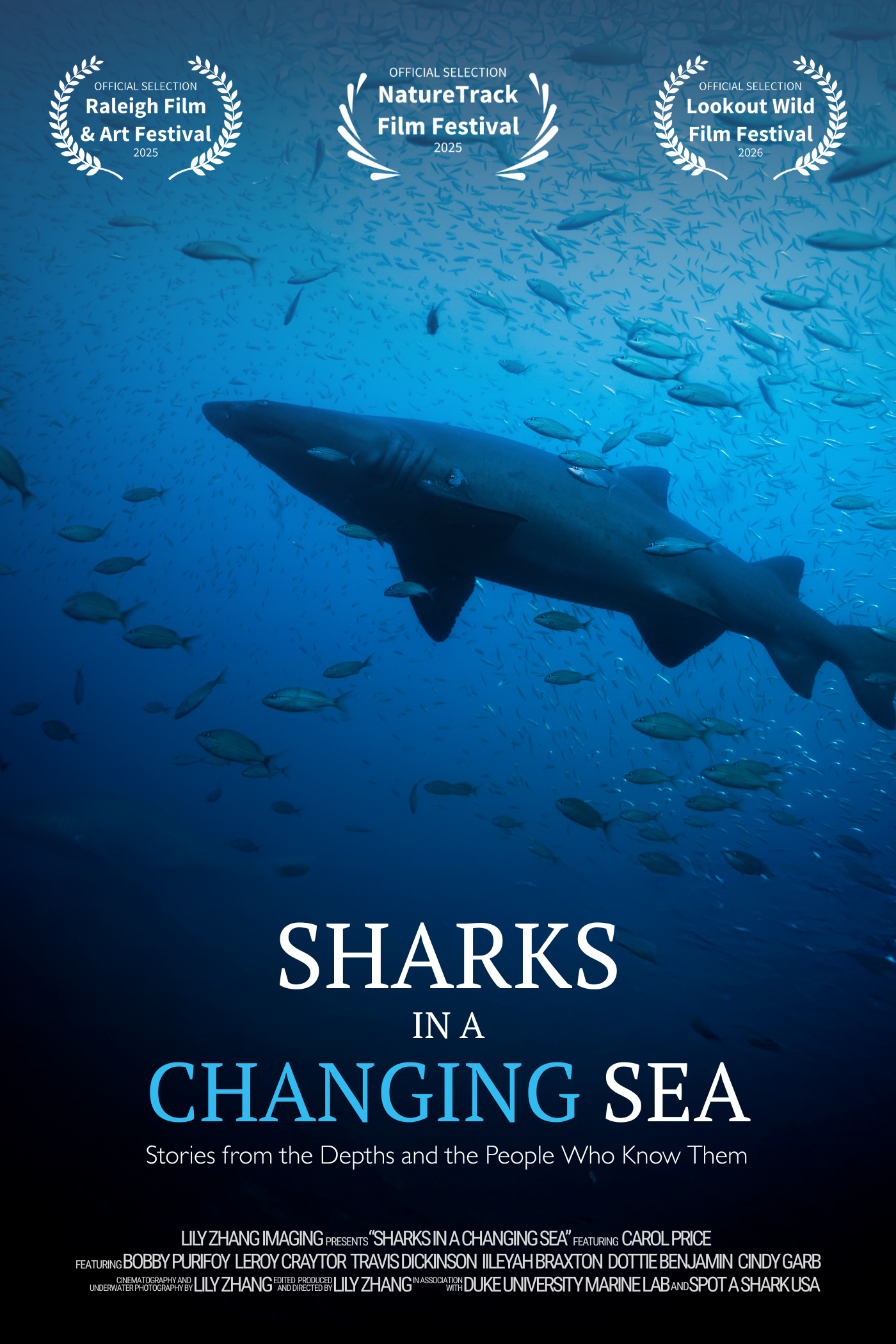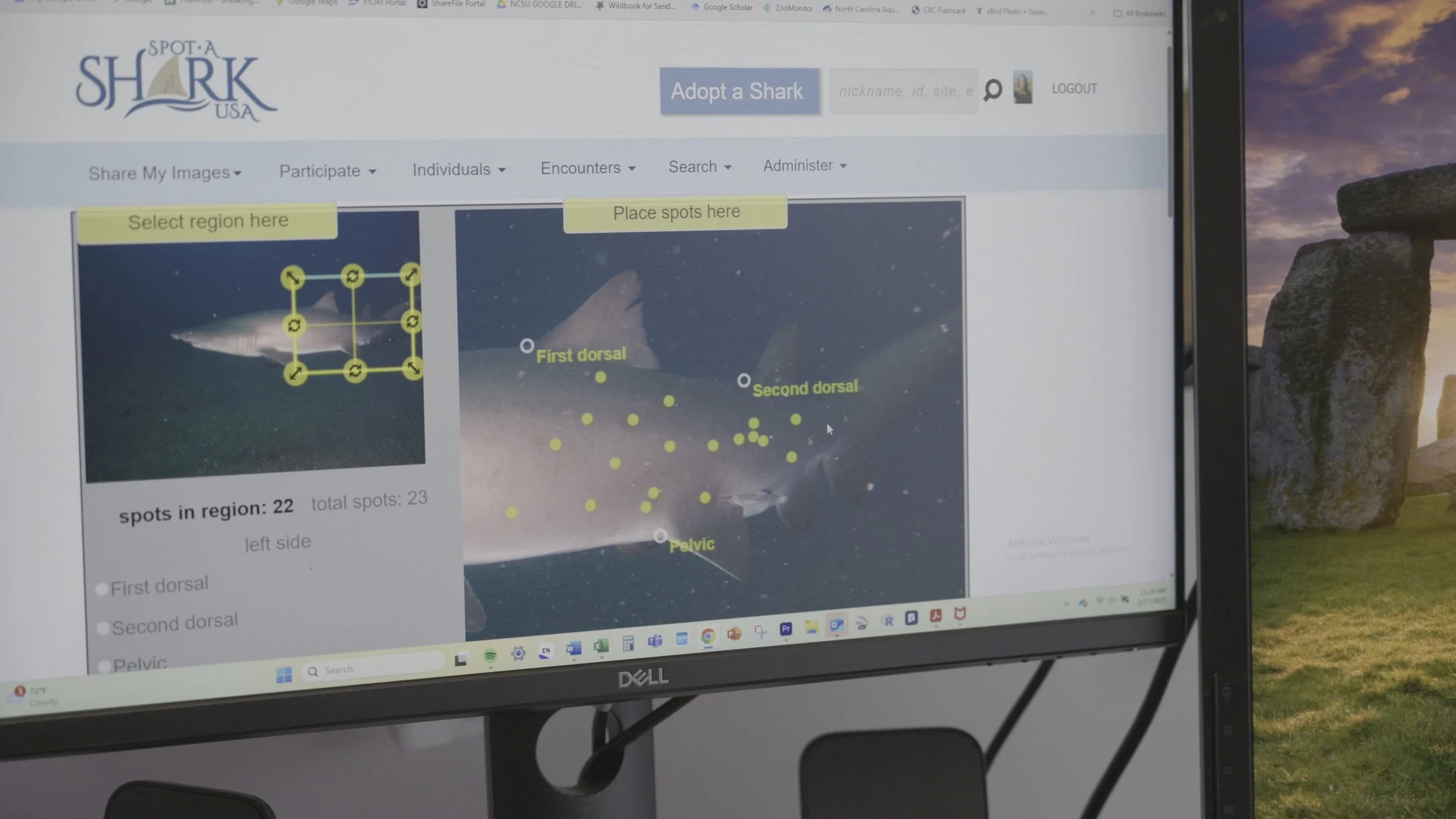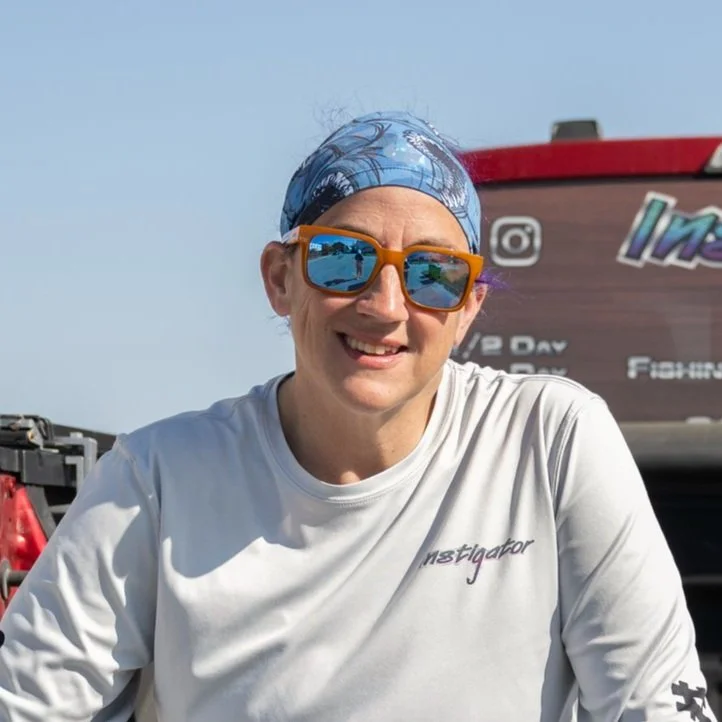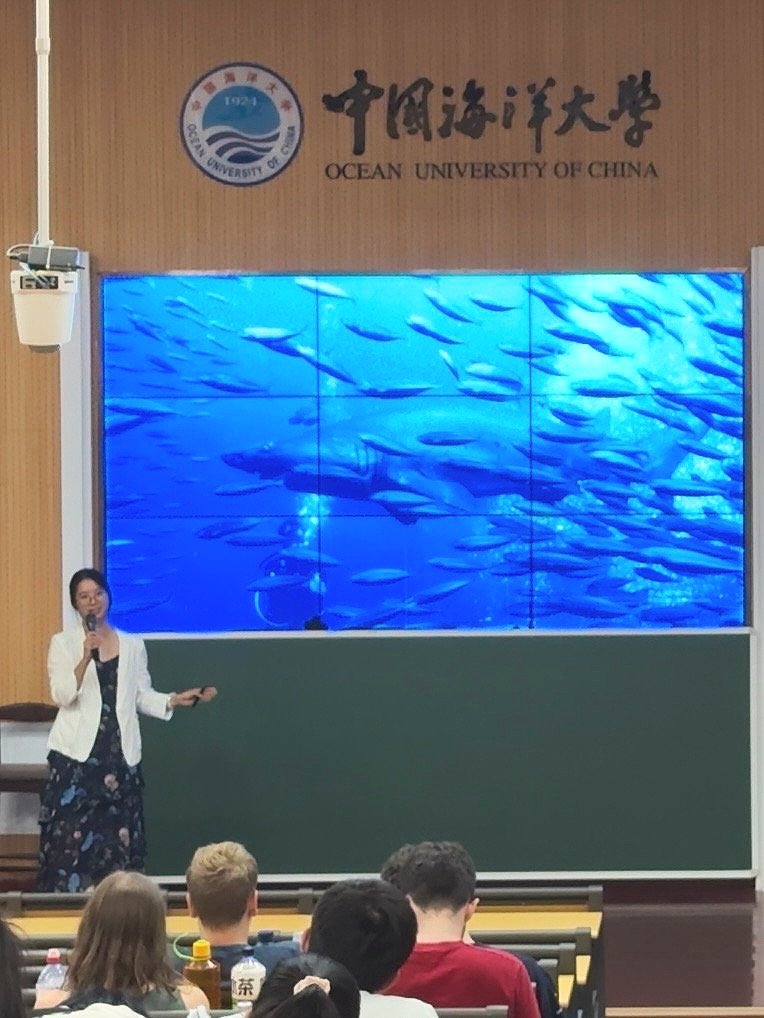Sharks in a Changing Sea
Sharks in a Changing Sea: Stories from the Depth and the People Who Know Them (25 min, 4K) is a documentary film that explores North Carolina’s vibrant dive culture and the deep local knowledge surrounding sand tiger sharks. Guided by conservation biologist Dr. Carol Price and longtime divers, the film captures a grassroots understanding built through hundreds of dives and decades of firsthand encounters. Shipwrecks in the “Graveyard of the Atlantic” have become important habitat for these charismatic but misunderstood predators. This is a love letter to the ocean, and to those who dive in, year after year.
Follow us on Instagram @sharksinachangingsea for more updates!
Director’s Statement
Fifty years ago, in June 1975, the blockbuster film Jaws was released. The film changed the way people saw sharks forever: as mindless predators lurking beneath the surface. Fear replaced curiosity; conservation took a backseat to sensationalism. Half a century later, on the same Atlantic coast, I found myself making a very different kind of shark film.
Sharks in a Changing Sea began as my Master's Project at Duke University. Advised by Dr. Carol Price (NC Aquariums/North Carolina State University) and Dr. Grant Murray (Duke University), I set out to document the local knowledge held by divers: observation-based, memory driven, and deeply tied to place. My original goal was purely academic: conduct qualitative interviews, support community science, and contribute to the Spot A Shark USA program. But things evolved quickly. I became the director, producer, scriptwriter, cinematographer, interviewer, and editor, all for the first time, because I realized how beautiful this story of coexistence truly is, and how deeply the world, in such a time of change, needs to see it.
Though I had experience with underwater photography, I had only ever seen a shark once. I didn’t expect to make a film. But this project pushed me to become a storyteller. It also made me realize that I had spent years inside two communities—the diving and academic worlds—that arguably hold the least fear or misunderstanding of sharks. It wasn’t until I started this project that I truly understood how powerful the “man-eater” myth still is in the public imagination. There are long, deliberate underwater shots in this film, uninterrupted sequences meant to reflect the sharks as I saw them: curious, calm, and peaceful.
Previous films by major media outlets have featured sharks along this coastline, but only through a scientific or sensational lens. This film is different. It’s not just about sharks, it’s about people. This is the first shark documentary to center the voices of North Carolina’s diving community: people whose daily encounters with the ocean shape a nuanced, place-based understanding of marine life. The local knowledge captured in this documentary is rich, layered, and often invisible to traditional science. How we might meaningfully incorporate it into future conservation efforts is a question I’m still trying to answer.
Gallery
Quotes
Dr. Carol Price | NC State University Adjunct Faculty, NC Aquarium Conservation Research Coordinator, Spot A Shark USA Project Manager
“The best science is done in collaboration with other smart people who really have skill sets and interests that are different from your own. And that's how we make each other stronger … When we all sort of put our resources together, we can do these amazing scientific projects that none of us could do just on our own.”
Iileyah Braxton | NC State University Undergraduate Student, Spot A Shark USA Researcher
“Movies like Jaws and things like that instilled a lot of fear. That also allowed people to feel more negative about sharks because it ended up becoming an association with something to be evil or demonic. With the research that I've done as well as like inputting like me myself, going diving with them might bring out a completely different outlook that they're not as aggressive as you might think.”
Cindy Garb | Owner, Boat Captain & Diving Instructor at Instigator Fishing & Diving Charters
“I am all about my job, my safety for my divers, and the safety of the ocean itself. Because first of all, if we don't have that ocean, then we don't have anything to bring our divers to. So I'm very much about taking care of that environment. And as far as being a, a female captain, I love what we have to offer here in my very own backyard. My backyard being the Atlantic Ocean off of North Carolina, 'cause we have so much for people to see here.”
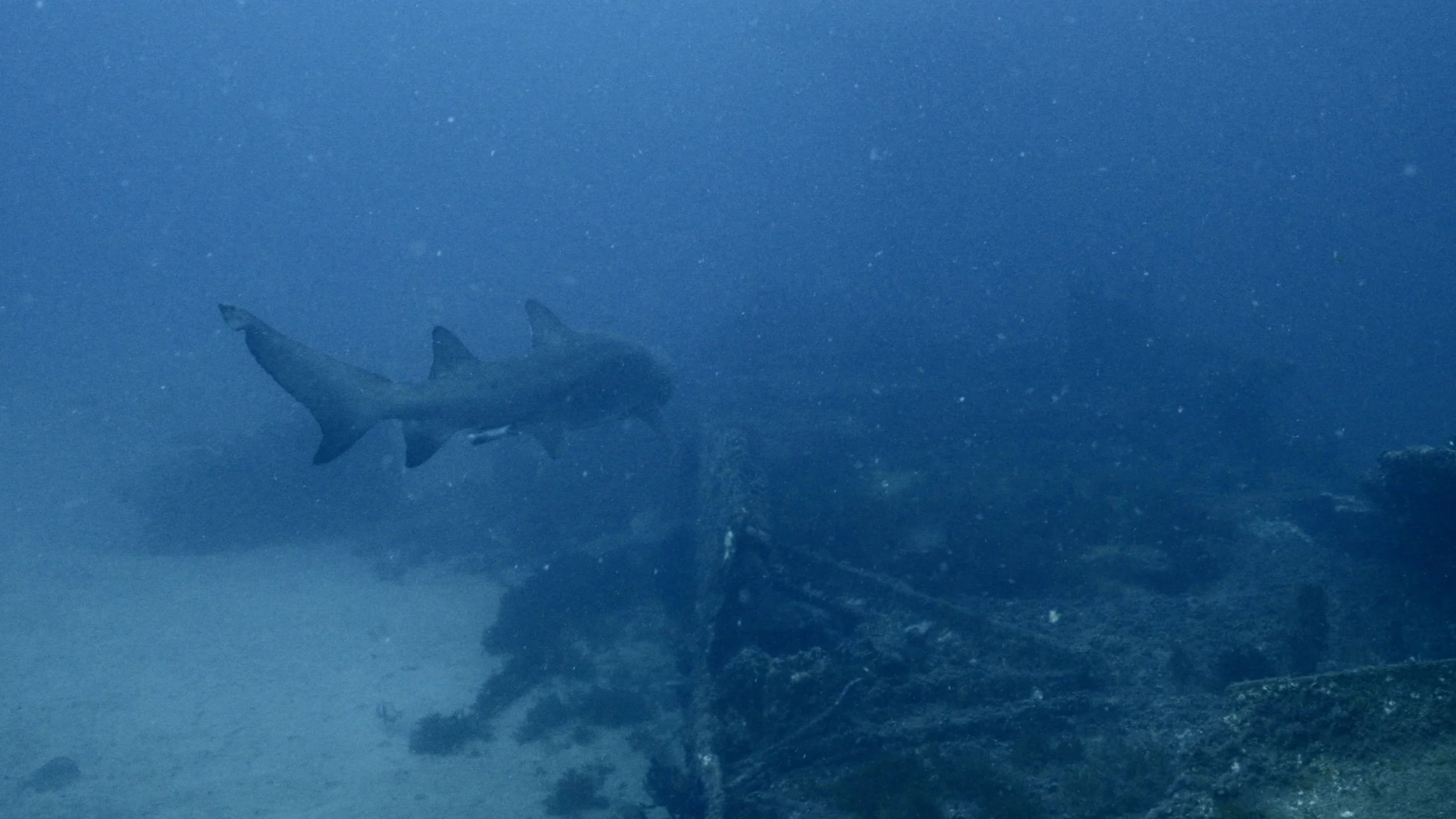
Credits
Directed by Lily Hanzheng Zhang
Featuring Dr. Carol Price, Bobby Purifoy, Leroy Craytor, Travis Dickinson, Iileyah Braxton, Dottie Benjamin, Cindy Garb
Cinematography and Underwater Videography by Lily Hanzheng Zhang
Impact Produced by Dr. Carol Price
Additional Underwater Photography by Bobby Purifoy, Dottie Benjamin, Cindy Garb
Additional Drone Photography by Maia Griffith (Duke University MaRRS Lab)
Map by Ara McClanahan (Price et al. 2018)
In association with Duke University Marine Lab and Spot A Shark USA
Special Thanks to Olympus Dive Center, Instigator Fishing and Diving, Discovery Diving, Graveyard of the Atlantic Museum, The Marine Robotics & Remote Sensing Lab
Special Thanks to Dr. Grant Murray, Molly Trivelpiece, Rafid Shidqi, Sally Dowd, Terry Leonard
Funding Support Provided by Joseph S. Ramus Endowment Fund
Impact & Engagement
Since its completion, Sharks in a Changing Sea has sparked meaningful conversations in both academic and community settings. Here’s a glimpse of where the story has traveled:
April 21, 2025 – Master’s Project Presentation at Duke University, North Carolina, USA
June 24, 2025 – Official Premiere Community Screening at Duke Marine Lab, North Carolina, USA
July 7, 2025 – Academic Screening for Students at Ocean University of China
July 12, 2025 – Guest Presentation at Ocean University of China Top-Notch Student International Summer School, Qingdao, China
Project Behind the Film
Sharks in a Changing Sea began as a research project within the Master of Environmental Management program at Duke University, which was designed to document how North Carolina’s diving community contributes to our understanding of sand tiger sharks (Carcharias taurus), a vulnerable and understudied species.
The core of the research involved conducting qualitative interviews with eleven local stakeholders—including charter captains, dive instructors, marine scientists, and museum educators—whose knowledge stems from decades of observing these sharks in the wild. Drawing from first-hand accounts, the project aimed to capture ecological insights on site fidelity, behavior, seasonality, and regional shark populations—observations that often fall outside the scope of traditional scientific studies.
While the final film tells a story of human-ocean connection, the foundation of the work is grounded in community-driven research. The accompanying written report offers a deeper dive into the methodology, interview findings, and broader implications for marine science and policy.
FAQs
-
Not yet. Sharks in a Changing Sea is currently being submitted to festivals and screening at select events. Follow us on Instagram (@sharksinachangingsea) for updates on public releases and future screenings.
-
Most footage was shot on a Nikon Z9 in an underwater housing with a Z 24–70mm lens. We used ambient natural light when possible, and at times paired it with two DivePro G18 lights for deeper or low-light scenes.
-
Check out Spot A Shark USA’s official website. Anyone can submit photos to help identify sharks!
-
Absolutely! Please reach out through email (lilyzhangimaging@gmail.com) or direct message (@sharksinachangingsea). We’d love to collaborate!
